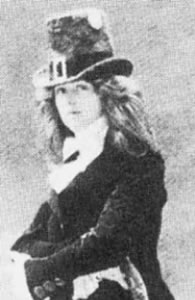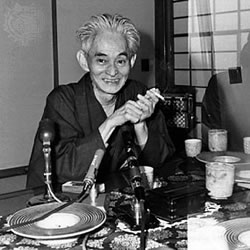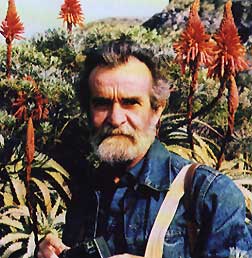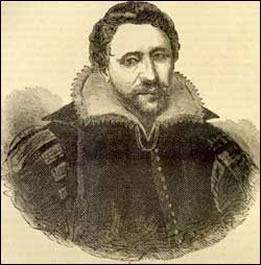De Amerikaanse schrijver William Styron werd op 11 juni 1925 in Newport News in de staat Virginia geboren. In 1979 publiceerde hij de roman Sophie’s Choice waarvoor hij de National Book Award kreeg. In 1998 werd de roman opgenomen in de lijst van de 100 beste Engelstalige boeken van de 20ste eeuw opgesteld door de American Modern Library. Zie ook mijn blogs van 11 juni 2006 en van 4 november 2006.
Uit: Sophie’s Choice
“In those days cheap apartments were almost impossible to find in Manhattan, so I had to move to Brooklyn. This was in 1947, and one of the pleasant features of that summer which I so vividly remember was the weather, which was sunny and mild, flower-fragrant, almost as if the days had been arrested in a seemingly perpetual springtime. I was grateful for that if for nothing else, since my youth, I felt, was at its lowest ebb. At twenty-two, struggling to become some kind of writer, I found that the creative heat which at eighteen had nearly consumed me with its gorgeous, relentless flame had flickered out to a dim pilot light registering little more than a token glow in my breast, or wherever my hungriest aspirations once resided. It was not that I no longer wanted to write, I still yearned passionately to produce the novel which had been for so long captive in my brain. It was only that, having written down the first few fine paragraphs, I could not produce any others, or–to approximate Gertrude Stein’s remark about a lesser writer of the Lost Generation–I had the syrup but it wouldn’t pour. To make matters worse, I was out of a job and had very little money and was self-exiled to Flatbush–like others of my countrymen, another lean and lonesome young Southerner wandering amid the Kingdom of the Jews.
Call me Stingo, which was the nickname I was known by in those days, if I was called anything at all. The name derives from my prep-school days down in my native state of Virginia. This school was a pleasant institution to which I was sent at fourteen by my distraught father, who found me difficult to handle after my mother died. Among my other disheveled qualities was apparently an inattention to personal hygiene, hence I soon became known as Stinky. But the years passed. The abrasive labor of time, together with a radical change of habits (I was in fact shamed into becoming almost obsessively clean), gradually wore down the harsh syllabic brusqueness of the name, slurring off into the more attractive, or less unattractive, certainly sportier Stingo.”

William Styron (11 juni 1925 – 1 november 2006)
De Britse dichteres en schrijfster Renée Vivien (eig. Pauline Mary Tarn) werd geboren op 11 juni 1877 in Londen. Zij was de dochter van een Schotse vader en een Amerikaanse moeder. Na haar schooltijd die zij in New York, Parijs en Londen doorbracht, vestigde zij zich als schrijfster in Parijs. Schrijven deed zij in het Frans. Vivien was bekend vanwege haar excentrieke manier van kleden en voor haar openlijk beleden lesbische geaardheid. Zij had jarenlang een relatie met Natalie Clifford Barney, de spil van een literaire salon. Vivien was zeer gecultiveerd en maakte talrijke reizen. Een deel van haar werk verscheen onder het pseudoniem Paule Riversdale.
Roses du soir
Des roses sur la mer, des roses dans le soir,
Et toi qui viens de loin, les mains lourdes de roses !
J’aspire ta beauté. Le couchant fait pleuvoir
Ses fines cendres d’or et ses poussières roses…
Des roses sur la mer, des roses dans le soir.
Un songe évocateur tient mes paupières closes.
J’attends, ne sachant trop ce que j’attends en vain,
Devant la mer pareille aux boucliers d’airain,
Et te voici venue en m’apportant des roses…
Ô roses dans le ciel et le soir ! Ô mes roses !
Ta royale jeunesse a la mélancolie
Ta royale jeunesse a la mélancolie
Du Nord où le brouillard efface les couleurs,
Tu mêles la discorde et le désir aux pleurs,
Grave comme Hamlet, pâle comme Ophéli
Tu passes, dans l’éclair d’une belle folie,
Comme elle, prodiguant les chansons et les fleurs,
Comme lui, sous l’orgueil dérobant tes douleurs,
Sans que la fixité de ton regard oublie.
Souris, amante blonde, ou rêve, sombre amant,
Ton être double attire, ainsi qu’un double aimant,
Et ta chair brûle avec l’ardeur froide d’un cierge.
Mon coeur déconcerté se trouble quand je vois
Ton front pensif de prince et tes yeux bleus de vierge,
Tantôt l’Un, tantôt l’Autre, et les Deux à la fois.

Renée Vivien (11 juni 1877 – 10 november 1909)
De Japanse schrijver Yasunari Kawabata werd geboren op 11 juni 1899 in Osaka. Hij won in 1968 als eerste Japanner (en tweede Aziaat) de Nobelprijs voor de Literatuur won.Het werk dat hijzelf het beste vond is in de jaren 70 in het Nederlands vertaald onder de titel De meester van het go-spel en heet in het Engels The master of Go. Het gaat over een match tussen de twee beste Go-spelers ter wereld, de ene een oude vos, de andere een onconventioneel aanstormend jong talent. De match heeft echt plaatsgevonden in 1938 tussen de oude Honinbo Shusai en Minoru Kitani. Kawabata maakte in 1972 een einde aan zijn leven.
Uit: Tausend Kraniche
“Kikuji war in den Garten des Enkakuji-Tempel in Kamakura eingetreten, aber er wusste immer noch nicht recht, ob er an dieser Teezeremonie teilnehmen sollte. Sie musste längst begonnen haben.
Chikako Kurmoto, die Teezeremonienlehrerin seines verstorbenen Vaters, pflegte Kikuji jedesmal einzuladen, wenn sie mit ihren Schülern und Schülerinnen eine Teezeremonie in einem Pavillon des Tempels beging. In den Jahren nach dem Tod seines Vaters hatte Kikuji diese Einladungen nur noch als Gesten der Höflichkeit betrachtet und war ihnen nie mehr gefolgt.
Unter die jüngste Einladung hatte Chikako jedoch geschrieben, dass sie ihn bäte, dieses Mal zu kommen, da sie ihn mit einer ihrer Schülerinnen bekannt machen möchte.
Als Kikuji die Einladung las, war eine merkwürdige Erinnerung in ihm aufgestiegen: er musste an Chikakos Muttermal denken.”

Yasunari Kawabata (11 juni 1899 — 16 april 1972)
De Zuidafrikaanse schrijver Harold Athol Lannigan Fugard werd geboren op 11 juni 1932 in Middelburg, Kaapprovincie. Hij studeerde in Kaapstad en was daarna enige tijd werkzaam als zeeman, klerk bij een gerechtshof en journalist voordat hij zich in 1957 definitief aan het theater ging wijden. Zijn stukken werden opgevoerd in onder andere Engeland, de Verenigde Staten, Zuid-Afrika en Nederland. Fugard debuteerde als toneelschrijver in 1958 met het stuk No Good Friday. Hierin speelden zwarte acteurs mee, wat een gewaagde onderneming was op het hoogtepunt van de Apartheid. Mongogo verscheen een jaar later en in 1963 The Blood Knot. Deze vormde samen met Hello and Goodbye (1966) en Boesman en Lena (1969), een familie-trilogie. Enkele andere werken van Fugard zijn The island (1973) over het leven van gevangenen op Robbeneiland, de roman Tsotsi (1980) over het leven in Sophiatown in de jaren vijftig. In 2005 werd naar deze roman de film Tsotsi gemaakt, onder de regie van Gavin Hood. De film won in 2005 een Oscar voor Beste Niet-Engelstalige Film.
Uit: Tsotsi
“His Sunday night now, come in a warm cloud of smoke and darkness in the streets and moths raging in soft storms around the lamp; come under a velveted spread of smudged stars and a promise of the moon in the east where a white radiance is already leaping off the rooftops of houses that way; come at last after the hazy end to a day that loitered its way lazily through sunshine and prepares now for sleep with the widest yawn and longest stretch of the week. And wherever the people are gathered togethter in drowsy knots, in rooms, around fires in backyards, on street corners or drinking in the shebeens, words are thrown out dispiritedly like a dice game without a stake. The prospect of sleep and the passing of time recur like lucky numbers, but no one gets excited because no one stands to win.”

Athol Fugard (Middelburg (ZA), 11 juni 1932)
De Engelse dichter Ben Jonson werd geboren rond 11 juni 1572 in Westminster, Londen. Zie ook mijn blog van 11 juni 2006.
HOW HE SAW HER
I beheld her, on a day,
When her look outflourished May,
And her dressing did outbrave
All the pride the fields then have.
Far I was from being stupid,
For I ran and called on Cupid,
‘Love, if thou wilt ever see
Mark of glory, come with me.
Where’s thy quiver? Bend thy bow.
Here’s a shaft; thou art too slow!’
And withal I did untie
Every cloud about his eye.
But he had not gained his sight
Sooner, than he lost his might
Or his courage; for away
Straight he ran, and durst not stay,
Letting bow and arrow fall;
Nor for any threat or call,
Could be brought once back to look.
I, foolhardy, there uptook
Both the arrow he had quit
And the bow, which thought to hit
This my object. But she threw
Such a lightning, as I drew,
At my face, that took my sight
And my motion from me quite;
So that there I stood a stone,
Mocked of all, and called of one–
Which with grief and wrath I heard–
Cupid’s statue with a beard,
Or else one that played his ape
In a Hercules’s shape.

Ben Jonson (ca. 11 juni 1572 – 6 augustus 1637)
De Engelse dichter en satiricus George Wither werd geboren op 11 juni 1588 in Bentworth. Zijn opleiding kreeg hij aan Magdalen College in Oxford. Twee maal zat hij vast voor zijn satirische werk. Voor Abuses, Stript and Whipt (1613), en later in Newgate voorWither’s Motto (1621). Zijn belangrijkste werken waren Fidelia (1617), Fair Virtue (1622), and Juvenilia (1622). Hij publiceerde ook een A Collection of Emblemes (1634/35).
The Marigold
When with a serious musing I behold
The grateful and obsequious marigold,
How duly, ev’ry morning, she displays
Her open breast, when Titan spreads his rays;
How she observes him in his daily walk,
Still bending towards him her tender stalk;
How, when he down declines, she droops and mourns,
Bedew’d, as ’twere, with tears, till he returns;
And how she veils her flow’rs when he is gone,
As if she scorned to be looked on
By an inferior eye, or did contemn
To wait upon a meaner light than him;
When this I meditate, methinks the flowers
Have spirits far more generous than ours,
And give us fair examples to despise
The servile fawnings and idolatries
Wherewith we court these earthly things below,
Which merit not the service we bestow.
But, O my God! though groveling I appear
Upon the ground (and have a rooting here
Which hales me downward) yet in my desire
To that which is above me I aspire;
And all my best affections I profess
To Him that is the sun of righteousness.
Oh, keep the morning of His incarnation,
The burning noontide of His bitter passion,
The night of His descending, and the height
Of His ascension ever in my sight,
That imitating Him in what I may,
I never follow an inferior way.

George Wither (11 juni 1588 – 2 mei 1667)
Uit: A Collection of Emblemes (geen portret beschikbaar)
